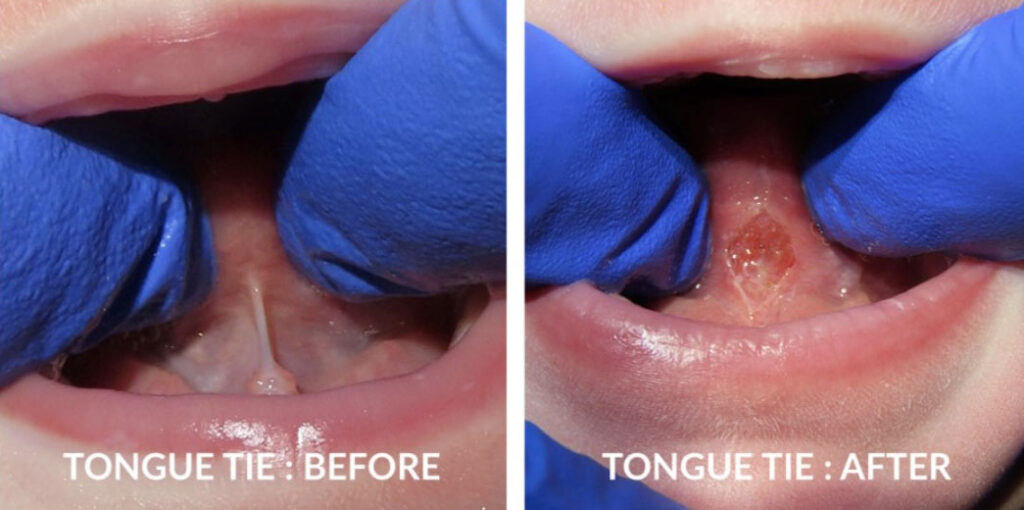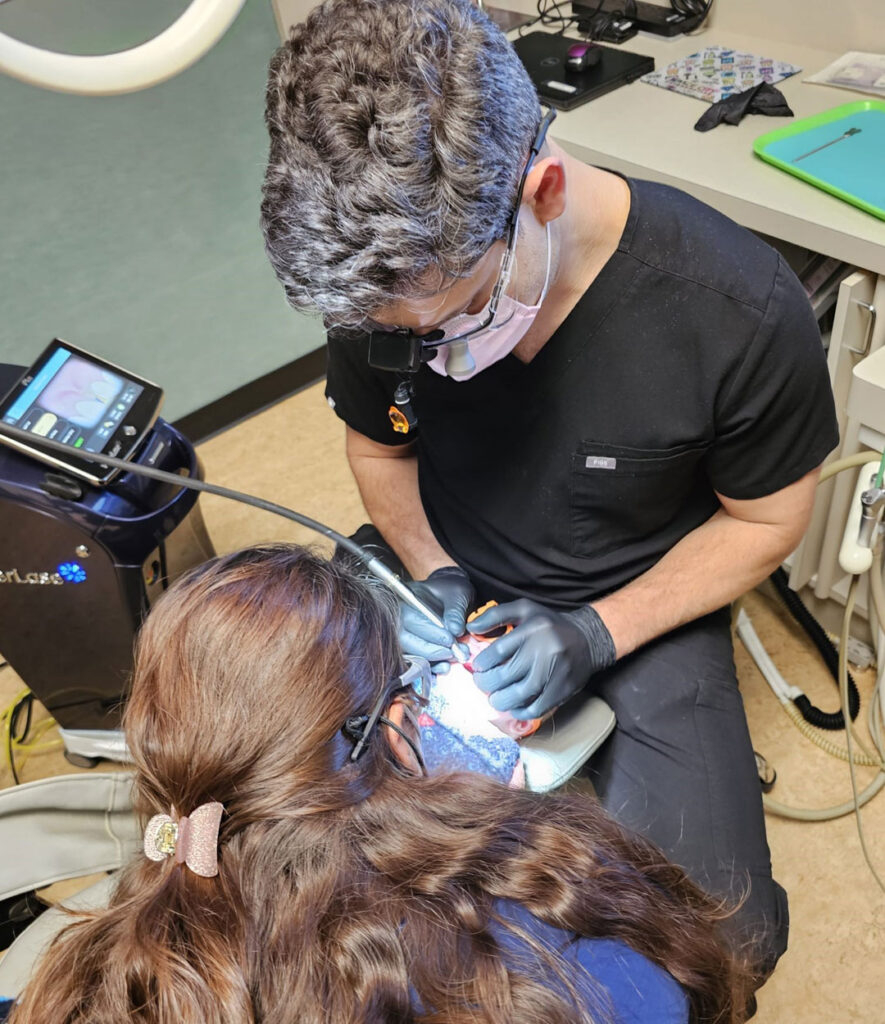How a Laser Frenectomy Can Enhance Your Baby’s Breastfeeding and Speech Development
As a parent, your foremost concern is the health and well-being of your child. In the context of feeding and speech development, one frequently overlooked aspect is the presence of a tongue-tie or lip-tie. These conditions arise when the frenulum, the small tissue band that connects the tongue or lip to the mouth, is overly tight or restrictive. Such restrictions can hinder breastfeeding and may subsequently affect speech development. Fortunately, a laser frenectomy presents a safe, effective, and minimally invasive option to assist your child in overcoming these difficulties.
If you are contemplating this laser frenectomy treatment for your child, it is crucial to select a qualified laser frenectomy dentist to ensure a seamless and comfortable experience.
What Is a Frenectomy?
A frenectomy is a surgical procedure that entails the removal or alteration of the frenulum to enhance the mobility and functionality of the tongue or lip. This procedure is commonly indicated for:
- Tongue-tie (Ankyloglossia): When the lingual frenulum is excessively short or thick, limiting tongue movement.
- Lip-tie: When the frenulum of the upper lip is too tight, hindering proper latching during breastfeeding.
A laser frenectomy employs a precise laser to release the frenulum without the necessity for traditional cutting or sutures. This technique offers numerous advantages, including:
- Minimal bleeding
- Reduced discomfort
- Quicker healing time
- Lower risk of infection
How a Laser Frenectomy Enhances Breastfeeding

Breastfeeding is vital for a baby’s nutrition, immune system development, and the bonding experience with the mother. However, tongue-tie and lip-tie can complicate the latching process, resulting in:
- A shallow latch that causes pain and discomfort for the mother
- Frequent feeding sessions due to ineffective milk transfer
- Insufficient weight gain in the baby
- Increased gassiness and reflux from swallowing excess air
- Frustration and premature weaning due to feeding difficulties
A laser frenectomy can address these challenges by improving the baby’s ability to latch effectively, suck efficiently, and nurse comfortably.
Numerous mothers observe a noticeable enhancement in their infant’s feeding capabilities immediately after the procedure.
The Role of Laser Frenectomy in Speech Development

While challenges with breastfeeding are often the initial indication of tongue-tie, this condition can also affect a child’s speech development as they mature. A limited range of tongue movement can hinder the production of specific sounds, including:
- “T,” “D,” “L,” and “R” sound
- Rolling the tongue for certain words
- Clear articulation and pronunciation
Early intervention through a laser frenectomy can help avert speech delays and complications. By enhancing tongue mobility, children are better equipped to develop clearer speech patterns and mitigate the frustration associated with communication difficulties.
Signs That Your Baby May Require a Frenectomy
It is crucial to identify the signs that may suggest a tongue-tie or lip-tie. Common symptoms include:
For Breastfeeding Infants:
- Difficulty latching onto the breast
- Clicking noises during nursing
- Extended feeding sessions without achieving satisfaction
- Gassiness, irritability, or symptoms resembling colic
- Insufficient weight gain
- Sore, cracked, or bleeding nipples in the mother


For Older Infants and Toddlers:
- Challenges with consuming solid foods
- Issues with speech development
- Frustration when attempting to articulate words
- Frequent gagging or choking on food
- Dental problems, such as a gap between the front teeth caused by a tight lip frenulum
If your child exhibits any of these symptoms, it is advisable to consult a pediatric dentist or specialist to determine if a frenectomy is necessary.
What to Anticipate During a Laser Frenectomy
One of the benefits of a laser frenectomy is its efficiency and minimal discomfort. Here is what you can expect:
Before the Procedure:
- The dentist will evaluate the movement of the baby’s tongue and lip.
- A detailed explanation of the procedure will be provided, allowing parents to ask questions.
- A numbing agent may be applied to ensure the child’s comfort.
During the Procedure:
- The laser is employed to release the constricted frenulum.
- The entire procedure lasts only a few minutes.
- As the laser simultaneously cauterizes while cutting, there is minimal bleeding involved.

Aftercare and Recovery:
Parents may observe an immediate enhancement in breastfeeding. Some infants might exhibit fussiness for a few hours following the procedure, but this usually subsides quickly. Gentle stretching exercises may be advised to prevent reattachment. Healing typically occurs within a few days to a week, accompanied by minimal discomfort.
Long-Term Benefits of a Laser Frenectomy
Opting for a laser frenectomy at a young age can yield enduring advantages, such as:
- An improved breastfeeding experience for both mother and child
- A decreased likelihood of speech difficulties
- Enhanced oral development, which may mitigate future dental problems
- Greater comfort and ease when consuming solid foods
- Strengthened bonding between parent and child
Choosing the Right Dentist for a Laser Frenectomy
When contemplating a laser frenectomy, it is crucial to choose a skilled and experienced pediatric dentist. The most qualified providers:
- Utilize advanced laser technology for precise and pain-free treatment
- Have experience working with infants and young children
- Offer comprehensive aftercare instructions to ensure optimal healing
- Create a compassionate and family-friendly atmosphere
Early intervention for tongue-tie and lip-tie can significantly influence your baby’s ability to breastfeed, communicate, and develop appropriately. A laser frenectomy for children is a safe, effective, and minimally invasive solution that can address these challenges and enhance your child’s quality of life.
If you suspect that your baby may have a tongue-tie or lip-tie, do not hesitate to seek professional guidance. Addressing the issue promptly can lead to a healthier, happier, and more comfortable experience for both you and your child.
Ensuring your baby’s oral health today lays the groundwork for a lifetime of confident smiles and effective communication!
 Call
Call 


